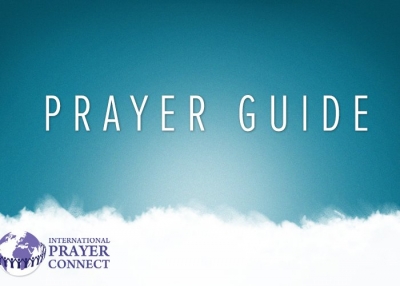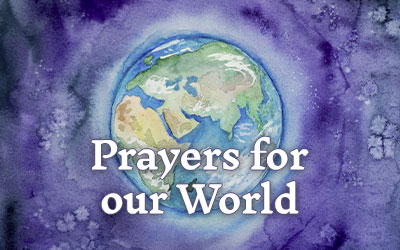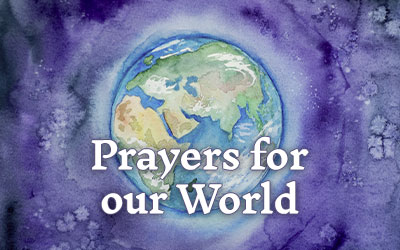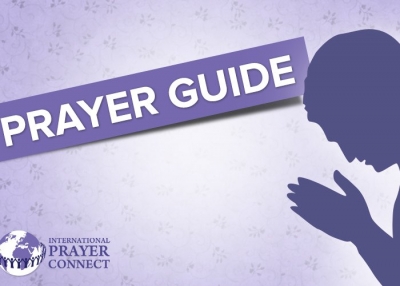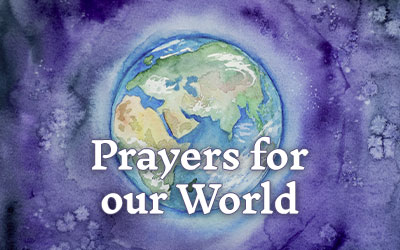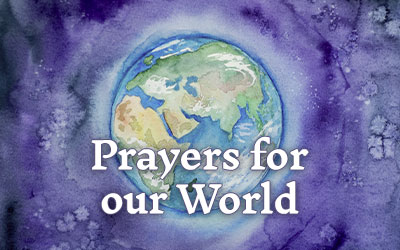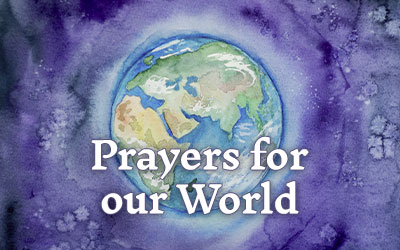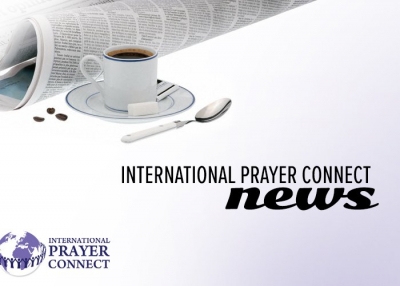The protest movement against Omar al-Bashir is growing – fast – and it needs the world’s support. Some excerpts from an article by Amir Ahmad Nasr
June 26, 2012
“The past decade has been a roller-coaster ride for the Sudanese citizens. From the humanitarian catastrophe in Darfur to the ethnic cleansing campaign targeting the Nuba people to the violent border clashes that accompanied the separation with South Sudan, this nation has witnessed hell. At least 200,000 people have lost their lives, and 2 million more have been displaced in Darfur alone, according to conservative U.N. estimates. Hundreds more have died during the recent border clashes between the two Sudans, and thousands have been driven from their homes.
But now there is a glimmer of hope. Daily growing protests against President Omar al-Bashir’s regime are spreading demographically and geographically, along with calls for strikes and civil disobedience. The spark was the government’s June 18 announcement of a new round of austerity measures, including massively unpopular cuts to fuel subsidies. The most dramatic protests have so far occurred in Khartoum’s al-Daim neighborhood, where police used extreme force and obscene amounts of tea gas in an attempt to suppress the demonstrators. In an example of the defiant mood taking over the streets, the protesters responded by burning a police truck.
As the fear barrier crumbles, Sudanese have a chance to topple Bashir and his National Congress Party (NCP) cronies – and to build a better future for their country.
It is important to understand why Sudanese would risk their lives to oppose Bashir. The narratives peddled by some commentators about the country’s recent conflicts – that they are between “Arabs versus Africans,” or “Muslims versus Christians” – are not only unhelpful, they are wrong. These characterizations have neither benefited the international community nor the diverse citizens of Sudan – including the Arabs and Afro-Arabs of the North who felt alienated by it and who have been violently oppressed for decades.
John Garang, the late southern Sudanese leader, made a crucial contribution to framing the situation as it atually is: A struggle between Sudan’s diverse population and Omar al-Bashir’s heinous dictatorship, which uses religion and tribalism to divide and control. “The Northerners are suffering too,” Garang said in one speech. “This is the problem of governance in Khartoum.”…
“It is not secret that Bashir’s Islamist regime, which seized power in a military coup on June 30, 1989, and hosted Osama bin Laden in the early 1990s before kicking him out only under withering international pressure, has a long list of bloody failings. But it just may be the worsening economic situation, which seems to have been the last straw for a growing number of non-ideological citizens of Khartoum, that could end his grip on power. The recent austerity cuts have been particularly painful in a country already suffering from inflation that hovers over 30 percent and which lost more than 70 percent of all its oil revenues upon South Sudan’s independence.
The recent demonstrations in Sudan’s capital are different than previous student-led protests. They have been strategically dispersed – relatively small crowds have spread out in numerous locations throughout Khartoum, stretching and exhausting the security forces’ resources. Demonstrations calling for the fall of the regime erupted in university campuses as well as in Wad Nubawai, al-Sajjana, Bahri, Jabra, al-Kalaakla, and Um Badda, among other neighborhoods and areas in the capital.
Unlike in the past, the protests were not just led by students but also by older folks and Sudanese women and mothers. There were also coordinated protests in other towns and regions throughout Sudan such as Kosti, Sinnar, and the northern parts of the country…
So far the response by the government, its armed thugs, and the NISS has been predictably brutal. In addition to tear gas and rubber bullets, student activists have reported being attacked by pro-government “militias” intent on breaking up the protests. It will likely get more violent. Yet despite the mass arrests of protesters…the demonstrations are continuing and intensifying.
The world has long struggled for a solution to the seemingly endless humanitarian disaster in Sudan. The protesters’ victory would represent a way forward. With Bashir and the NCP battered and gone, the door to change will open up in Khartoum – and a new, more responsible government could lead to better policies toward South Sudan and Darfur. Better leadership could bring the kind of peace that will finally ensure economic development in both Sudans – fueled by their bountiful oil reserves – and also open its doors to foreign governments and international oil companies seeking to invest and grow.
The Sudanese street has shown its resolve loud and clear. Time is now of the essence, in light of the protests’ building momentum and worsening crackdown. There isn’t a moment to lose: The international community must do its part to help Sudan achieve a better future. Let us please support the Sudanese struggle for liberation from this dictatorial oppressive and genocidal regime by our prayers!
Eritrea has been described as “the North Korea of Africa” because of the harsh, brutal treatment of the Christians by the dictatorship there. Christian Solidarity has produced the attached video about the suffering of a pastor who escaped to tell what conditions are like for fellow believers still imprisoned there. Please watch and pray for these dear people and that the government would be reformed or if need be overthrown.
“To east concerns about the Muslim Brotherhood’s rise to power in the Arab World’s most populous country”, the new Egyptian president Mohammed Morsi “Has backtracked on many of his previous extreme positions and reached out to liberals and to Egypt’s Christians. But at the same time, Morsi is pressing the military to give back some of the power it grabbed for itself over the last few weeks and probably hopes his conciliatory rhetoric will help him succeed. Observers inside and outside of Egypt are now watching to see how much power the Egyptian military will cede to Morsi and whether the Muslim Brotherhood has in fact really changed.”
From: LIGNET (This email address is being protected from spambots. You need JavaScript enabled to view it.)
We need to pray that President Morsi will follow through and act sincerely in regard to reaching out to more liberal elements of the population and especially to the Christians. Pray for religious and political freedom to be maintained and to increase under his leadership.
According to Newsmax.com, “The United States has quietly moved significant new military forces into the Persian Gulf to discourage an Iranian response to new sanctions imposed on the Islamic Republic. The American moves are designed to deter Iran from any attempt to shut the Strait of Hormuz and to increase the United States’ ability to strike into Iran if necessary…
A European Union oil embargo meant to pressure Iran over its nuclear program came into effect on Sunday, and on Monday, Iran announced it would consider legislation to disrupt marine traffic in the Strait of Hormuz. The legislation calls for the Iranian military to block any oil tanker on its way to countries that no longer buy Iranian crude because of the embargo. Please pray that Iran will back down and give up its suspected intentions to build nuclear weapons in order to threaten Israel and the West.
Prayer is requested concerning the Iranian government's campaign of intimidation against Christians and Churches.
We regret to report that one church has been forced to close. On Tuesday 5th June the Assemblies of God church in Tehran's Janat-Abad suburb was told to cease all activities, and threatened with the confiscation of its building.
Recall that in early May leaders of another Assemblies of God church in Tehran were ordered by the Ministry of Intelligence to submit the names and ID numbers of all members. Church leaders provided a list of names and ID numbers of church members who had given their consent, some of whom have subsequently been pressurised by the authorities.
Recall also that, since early February, two other legally recognised churches in Tehran have been ordered to stop holding Farsi-language services on Fridays, and that several members of Anglican, Presbyterian and Assemblies of God Churches have been arrested. Two of these are among at least 20 believers (most from Muslim backgrounds) who are known still to be detained.
Iranian Christians supporting these believers thank us for our prayers. They request our continued intercession asking that:
a. The closure order will be reversed and other restrictions on churches lifted.
b. All Christians in Iran will know the protection of the Father, comfort of the Son and the guidance of the Holy Spirit.
c. They will be able to meet for worship, prayer, Bible study and fellowship with like-minded believers.
d. Those believers currently detained will know the presence and peace of Jesus and be released soon.
e. Church and fellowship group leaders will know the Spirit’s discernment and wisdom
f. All officials involved will love mercy, act justly, learn about Jesus and choose to follow Him.
Dear Intercessors,
Greetings from Abu Dhabi, United Arab Emirates.
Few churches have come together to form the Global Partnership for Church Unity to pray and work together as One Body, Various Congregations.
Every second Saturday of the month, we intercede for the nation, region and nations going through difficulties.
At the beginning of 2013, we’re arranging the:
1st UAE National Prayer Summit 2013 of the Global Partnership for Church Unity
ONE BODY, DIVERSE CONGREGATIONS INTERCEDING TOGETHER
Abu Dhabi
Saturday, 26 January, 9 a.m. – 5 p.m.
@ Evangelical Community Church, Main Chapel
We would like to invite anyone in the region to join us either by sending a representative or encouraging their groups to pray together with us on January 26, 2013. Would it be possible for you to publish this through your network and partnerships?
Blessings and prayers.
About 400 Turkish, Korean and other ministry and prayer people took part in this prayer/mission event that turned out to be quite powerful, and I think consequential, for the nation. Without mentioning the unwelcome word “genocide”, I taught on transformational prayer breakthroughs and remitting bloodguilt on the land. Afterwards, a Turkish pastor and I facilitated a time of reconciliation and repentance between the Turks and representatives from other peoples. Many came up afterwards expressing their deep appreciation and saying it was just what Turkey needs. People have not wanted to deal with the terrible past of mass killings of the Armenians and other ethnic minorities. Pray they will take the session's teaching and the reconciliation to heart and take it back to their own cities and regions and begin to practice these things.
There needs to be a breakthrough here - only 4600 known believers among 74 million people. They complain of a pervasive spirit of fear, lying, division and oppression upon the small churches that do not yet pray together very often. Please pray with us that this kind of reconciliation and repentance will spread across Turkey, that these spiritual forces will be bound, and that a new day of liberation for the nation and church will begin.
The Borderland Prayer Initiative of June 16-17 brought together about thirty local participants – Czech and Slovak leaders from four “houses of prayer” in the Czech Republic and Slovakia and their family members – along with Brian Mills (Interprayer and IPC), Sam Hofmann (YWAM and Hernnhut) and myself in the border town of MIkulov on the Czech border with Austria. It was held in a Methodist church that is pastored by a Jewish believer who was from the original Jewish population that was uprooted and destroyed during the Holocaust.
We focused some strong prayer especially on the issue of “redigging the wells of revival”. It was from that same region of Moravia that the Moravians of the 18th century under the influence of brave reformer Jan Hus developed a vital movement for Christ involving prayer and Bible study that brought a time of deep revival and renewal and later resulted in the 100-year prayer chain in Hernnhut, Germany, from which hundreds of the first Protestant missionaries went out to far reaches of the world. The Moravians also deeply inspired and impacted both England and the USA through the lives and ministries of John and Charles Wesley and George Whitfield, who were mightily used of the Lord in the mighty revival that was know as the Great Awakening and led to the birth of the Methodist Church.
The local prayer leaders also took us over the border into Austria where we prayed at the battlefield where centuries before the Hapsburg emperor defeated the Bohemian ruler and stained the ground with the blood of many thousands of the ancestors of the Czechs and Slovaks. To this day, there remains a sense of spiritual and psychological hindrance affecting the relationship of nations in the region that either ruled or were under the thumb of the Austro-Hungarian empire’s hegemony. It was an encouraging, and I think potent, time of reconciliation and repentance praying, entering into His heart for these nations together. May the Lord use it to affect them positively!
Please continue to pray with us for any attitudinal barrier between these national groups to be broken and that Hungarians, Austrians, and other nationalities in the region will be drawn together for future initiatives. Pray that the fire of the Holy Spirit falls upon His Church and that we will see His healing and transformation in this region where the wounds of history can still permeate the atmosphere.
